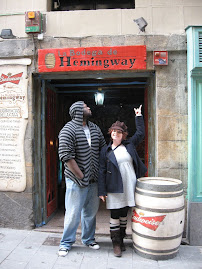Seguin's definition of idiocy rested on "educational potential" (Trent 18).
However, Linus Brockett, in 1855, took idiocy as a reflection of physical abnormalities:
"We should define idiocy...as the result of an infirmity of the body which prevents, to a greater or less extent, the development of the physical, moral and intellectual powers" (qtd in Trent 18).
R. J. Patterson notes "Idiocy, then, has a physical rather than a mental origin" (qtd in Trent 18).
As Trent notes, "For these early reformers the pathological emphasis was associated with a widely held view of degenerative and polymorphous heredity. Idiocy was related to many 'sins of the father': intemperance, poverty, consanguinity (meaning marriage between cousins), insanity, scrofula, consumption, licentious habits, failed attempts at abortion, and overwork in the quest for wealth and power. 'The vast majority of idiocy in our world,' claimed Brockett, 'is the direct result of violation of the physical and moral laws which govern our being; that often times the sins of the father are thus visited upon their children; and that the parent, for the sake of a momentary gratification of his depraved appetite, inflicts upon his hapless offspring a life of utter vacuity'" (qtd in Trent 18).
"A moral component was linked closely" (Trent 19).
I found this description of an "idiot" in 1860 particularly relevant for autism studies: "Given to making bizarre noises, masturbating frequently and in public, eating their own excrement, and abusing themselves, these transformed 'worst cases' convinced audiences of the salubrious effects of careful and intensive education" (Trent 19). It was, particularly, this description that got me thinking about the archival research into 19th century "idiots"--these behaviors are very, very common among autistics.
Tuesday, May 15, 2007
Subscribe to:
Post Comments (Atom)








3 comments:
I wonder if it is a coincidence (and I guess I don't think it is) that the studies of prisons which began in the nineteenth century coincides with this more serious look at "mental" illness.
I've actually been reading about this connection between "confinement" and mental illness in Foucault's Madness and Civilization this week. I'll post more later this week, but 19th century housing for the mentally ill was, essentially, prisons.
I'm sure you already have read about her and she wasn't really a disability theorist, but if you want to consider in any way the progressive American tradition of liberal reform, moving US policies away from simply incarcerating person's with mental illnesses, you should look at Dorothea Dix. In the 1840s she suvreyed jail conditions, focusing on the mentally ill were treated in those places.
Post a Comment